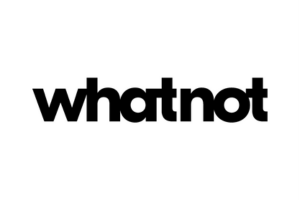
Law of Cards: Can an SAT Trick Help Upper Deck in Insurance Appeal?
As reported last December, Upper Deck lost their court battle with Endurance over insurance payouts. The trading card company is back for Round 2 after beginning the appeal process on January 17.
To get everybody up to speed, the Upper Deck v. Endurance suit came from Konami's accusations that Upper Deck counterfeited some of the most rare and valuable Yu-Gi-Oh! cards. Eventually, Upper Deck admitted guilt and confidentially settled the case with Konami. I don't need to use the phrase “allegedly counterfeited" here. Take Upper Deck's own attorney's admission during his opening statement at the Konami trial, “I'm here defending a counterfeiter and now I have to deal with that issue."
From an outsider's perspective, the Konami case was sexy. I mean, five Upper Deck management personnel asserted their Fifth Amendment rights against self-incrimination and did not answer any questions during their depositions. It was a big-dollar case, too. Upper Deck's insurance company, Endurance, paid out $1.2 million in attorneys' fees before it stopped paying and before Upper Deck finally threw in the towel.
After settling with Konami, Upper Deck may have felt it had extra time on its hands. The company went on to sue Endurance for the remainder of what it believed the insurance company owed (more attorneys fees, perhaps lots of late-night trips to Starbucks during trial prep, maybe some of the costs of the settlement, etc.) under the insurance policy.
In a double whammy, Upper Deck lost the Endurance case, and, in spectacular fashion, summary judgment was granted against Upper Deck.
Legal translation: The court found there were insufficient facts to allow Upper Deck to even go to trial and the judge blew the case up.
Endurance basically won because the court ruled that Upper Deck needed to disclose its counterfeiting scheme to the insurance company while it was happening.
Prior to the appeal, Upper Deck argued that Endurance did not have the right to stop paying under the policy. My favorite point in this regard had to do with Upper Deck's application for this insurance policy. Like all insurance policies, Upper Deck needed to fill one out. Some of those questions (16, 17 and 20 in particular) asked about any ongoing litigation or issues of concern that Upper Deck was already aware of or may already be involved in.
Legal translation: These questions are like the preexisting condition questions on a life insurance policy. They help the insurance company decide if granting the policy is worth the risk.
Now, Upper Deck argued that when it filled out this application, it did not conceal the Yu-Gi-Oh! scheme from Endurance because, “it drew a line through questions Nos. 16, 17, and 20 and left them unanswered."
Seriously. Upper Deck just skipped the questions. That doesn't work on the SAT so why would it work here?
Because we're up on appeal now, it obviously didn't work for the lower court either, which held: “rossing out...the questions on the application for insurance does not somehow excuse Upper Deck's concealment of its intentional counterfeiting activities nor does it impact Upper Deck's duty to disclose material information relevant to the assessment of risk."
Still, this is one of the arguments that the Ninth Circuit Court of Appeals will need to deal with on appeal.
Now, maybe I'm being too hard on Upper Deck. Law school trains you to see both sides of an issue (okay, to try and see both sides of an issue). So, here's the other side: Endurance, why the heck didn't you send the application back to Upper Deck and have it fill in answers 16, 17 and 20? At least tell Upper Deck, “If you don't answer, no insurance."
Come on Endurance, did you even read Upper Deck's application? You just issued the policy without looking it over, didn't you?
And it's because of that, there is wiggle room for Upper Deck. I don't think Upper Deck has much chance of winning with this argument, but, it still has a chance.
To be fair, Upper Deck does have other claims it's going to raise, but those are boring, so I won't get into them--yet. According to the court of appeal's schedule we'll see Upper Deck's arguments on April 23. I have a feeling there'll be something more exciting, or humorous, in those filings.
But I expect Upper Deck's filing will make a big deal about skipping questions 16, 17 and 20.
And, actually, on the SAT, you don't lose any points for not answering a multiple choice question, but you do lose points if you guess incorrectly. Maybe that was Upper Deck's strategy all along. Perhaps, it didn't want to put down the wrong answers that would count against it so better to skip the questions. I guess, then, Upper Deck's strategy would work on the SAT.
The information provided in Paul Lesko's “Law of Cards" column is not intended to be legal advice, but merely conveys general information related to legal issues commonly encountered in the sports industry. This information is not intended to create any legal relationship between Paul Lesko, the Simmons Browder Gianaris Angelides & Barnerd LLC or any attorney and the user. Neither the transmission nor receipt of these website materials will create an attorney-client relationship between the author and the readers.
The views expressed in the “Law of Cards" column are solely those of the author and are not affiliated with the Simmons Law Firm. You should not act or rely on any information in the “Law of Cards" column without seeking the advice of an attorney. The determination of whether you need legal services and your choice of a lawyer are very important matters that should not be based on websites or advertisements.
 | Making purchases through affiliate links can earn the site a commission |

































Sorry, comments for this entry are closed at this time.